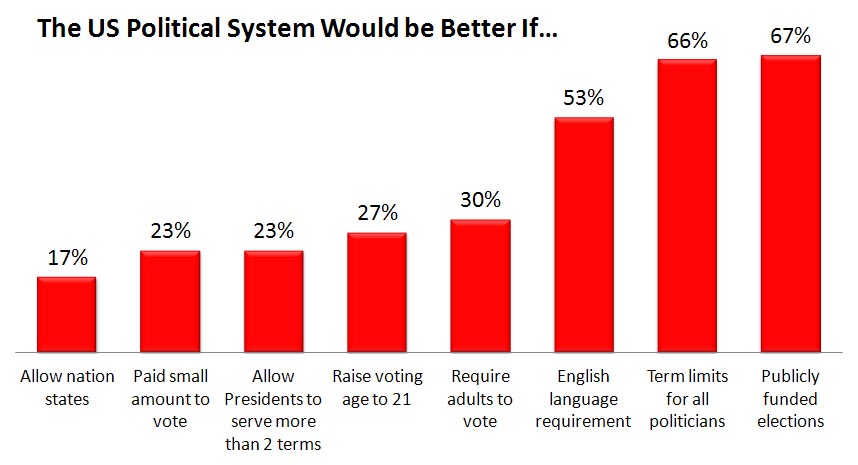As we continue to gear up for the elections, let’s take a break to consider our own ideas about how to reform America’s (broken?) political system. A few ideas that seem acceptable to a majority of Americans are: instituting term-limits for all of our leaders (66% agree) and mandating public funding for all elections (67% agree).
But since these “innovations” have been argued about for many decades with
no consensus resolution, more interesting to me is that slightly over half of all Americans (53%) also believe that creating an English-language requirement to vote would improve our political system… This is especially the case among older Americans ages 50+, two-thirds of whom seem to believe that if you aren’t fluent in English, you should surrender your right to vote.
Now I’m not sure what this “English language” requirement would entail. Should a U.S. registered voter be tested for English competency on an on-going basis? Who would be the arbitrator of who passes and who fails? Maybe it is the simple ability to follow the voting procedures in English and read the ballot in English? However, even though English is my native language, sometimes it takes me a while to understand the complicated legalese of the referendums and issues we are voting on.
The right to vote may seem like the foundation of our democracy but in fact, it’s not written into our Constitution. There have been several Amendments that prohibit voting discrimination based on race (15th), gender (19th) and age (26th), but no unconditional, absolute right to vote has ever been laid out.
So… some public policy questions to consider: Do you think our right to vote should be made more explicit? Or, do you think we should create parameters based on literacy or something else? Why would being able to read English make someone a better voter, especially if the information can be translated into other languages? And if some sort of literacy bar is required, will it really make a difference in the percentage and overall number of voters? Or, should we instead consider some sort of current events test to see if people are engaged and informed, rather than just being able to speak standard English?

Leave a Reply